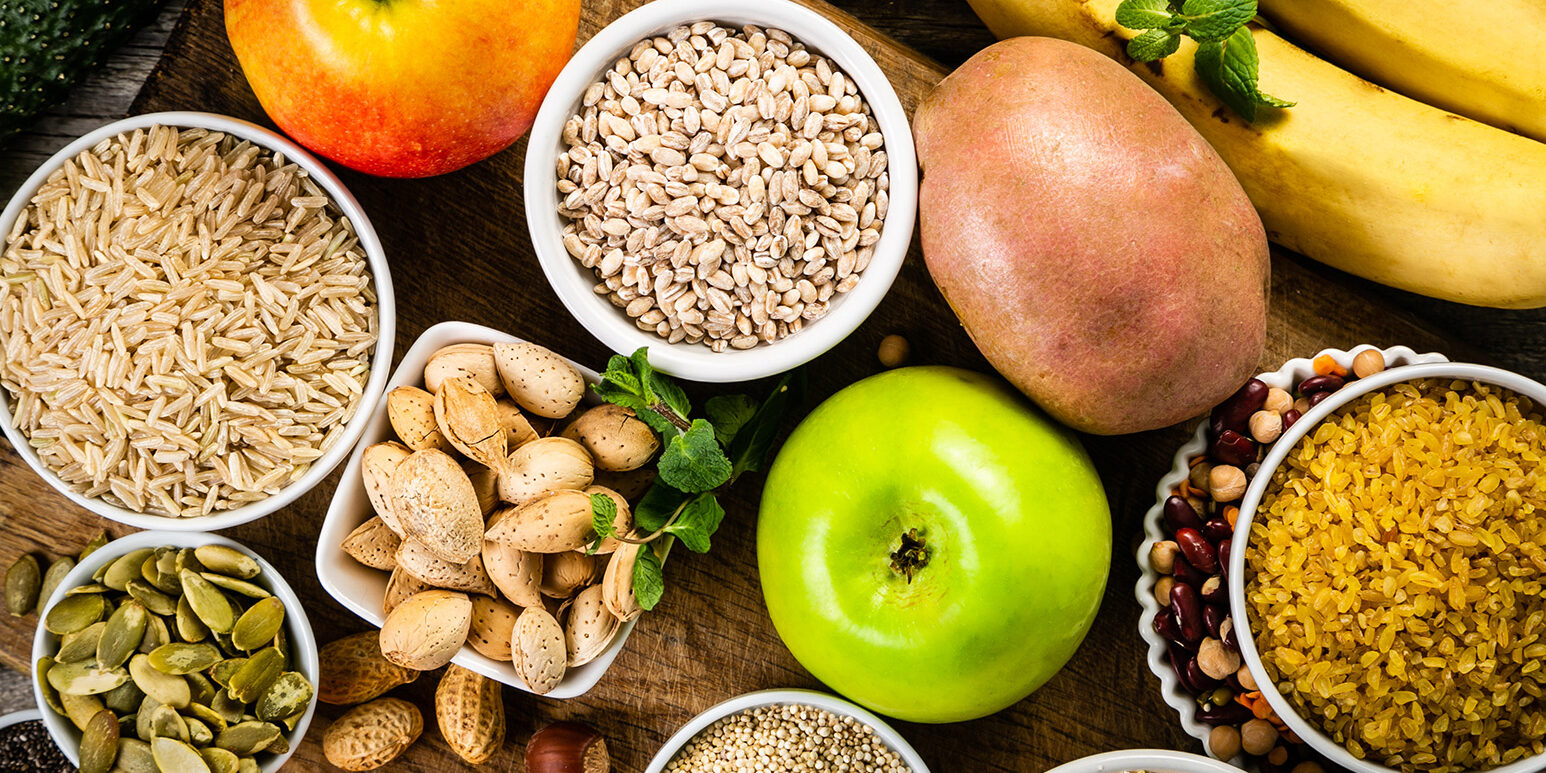By Daphne Baldwin Kornrich, MS, RDN, CSOWM, CDN
Why are carbs so complicated?
Carbohydrates are an essential macronutrient and are vital for our bodies to perform. Carbohydrates provide the necessary fuel for our bodies and minds to function. We could not survive very long without carbohydrates. When most people think of carbohydrates they think of grains, bread, rice and pasta. Most people don’t realize that dairy, vegetables and fruit are also forms of carbohydrates.
Certain carbohydrates are considered “simple” such as honey, table sugar and lactose in milk because they are broken down and adsorbed very quickly. Refined grains, such as white rice, bread and pasta have been processed, which removes important nutrients and fiber. These carbohydrates are also broken down quickly and don’t have the nutrients that complex carbohydrates have and may also increase food cravings.
By swamping refined carbohydrates with more complex carbohydrates such as starchy and non-starchy vegetables, whole grains, beans and fruit we can still enjoy our meals and get our fuel with more nutrients. In addition, because complex carbohydrates have more fiber they take longer for our body to digest, which helps with satiety, weight loss and maintenance and may help prevent the ups and downs in blood sugar levels as compared to simple and refined carbohydrates.
So, let’s start swapping…….
Using a food processor or spiralizer can help change the shape of certain vegetables to be similar in appearance to starches such as pasta and rice. If you are like me and aren’t good with gadgets, or if time is of the essence, look in the produce and frozen food departments of the supermarket to find vegetables that have already been chopped and spiralized. Spiralized zucchini and butternut squash make a great substitute for Sunday pasta. And remember, it’s all about the sauce!!!
Riced cauliflower is a great substitute for rice and can be used in stir fries, stuffed peppers and even as a pizza crust.
Try swapping sandwich bread, rolls and buns with a large crisp piece of lettuce, such as bibb or butter lettuce, and enjoy the freshness and the crunch.
There are many starchy vegetables that add flavor and color, but most importantly provide us with essential nutrients and fiber. Think green peas, which provide folate and B6, and acorn squash, which is a great source of potassium and antioxidants. Parsnips, a carrot look-a-like, provides magnesium and vitamin C.
Potatoes come in many varieties. Keep the skin on for added fiber to go along with the potassium, vitamin C and folate they provide. Sweet potatoes are a great option, and half of a potato goes a long way; but be mindful of the condiments you add. Try it plain to enjoy the natural flavor or add a little pepper, salsa, mustard or a dollop of plain Greek yogurt.
Swap out overly processed and refined grains with whole grains such as quinoa, brown rice, spouted grain bread, farro, whole-wheat or bean pasta, which will provide fiber and more nutrients than their processed counterparts.
Remember that portion size counts. Try to choose either a whole grain or starchy vegetable and fill the rest of you plate with non-starchy vegetables, and include a protein source such as chicken, fish, tofu or eggs.
Be creative and check out recipes. Use your imagination to swap out simple and refined starches with more nutrient dense complex carbohydrates. You may be pleasantly surprised how colorful and enjoyable swapping carbs can be!
Daphne Baldwin Kornrich, MS, RDN, CSOWM, CDN has been a registered dietitian nutritionist for the past 30 years, working in a wide variety of clinical and outpatient settings. She currently specializes in bariatrics and weight management

